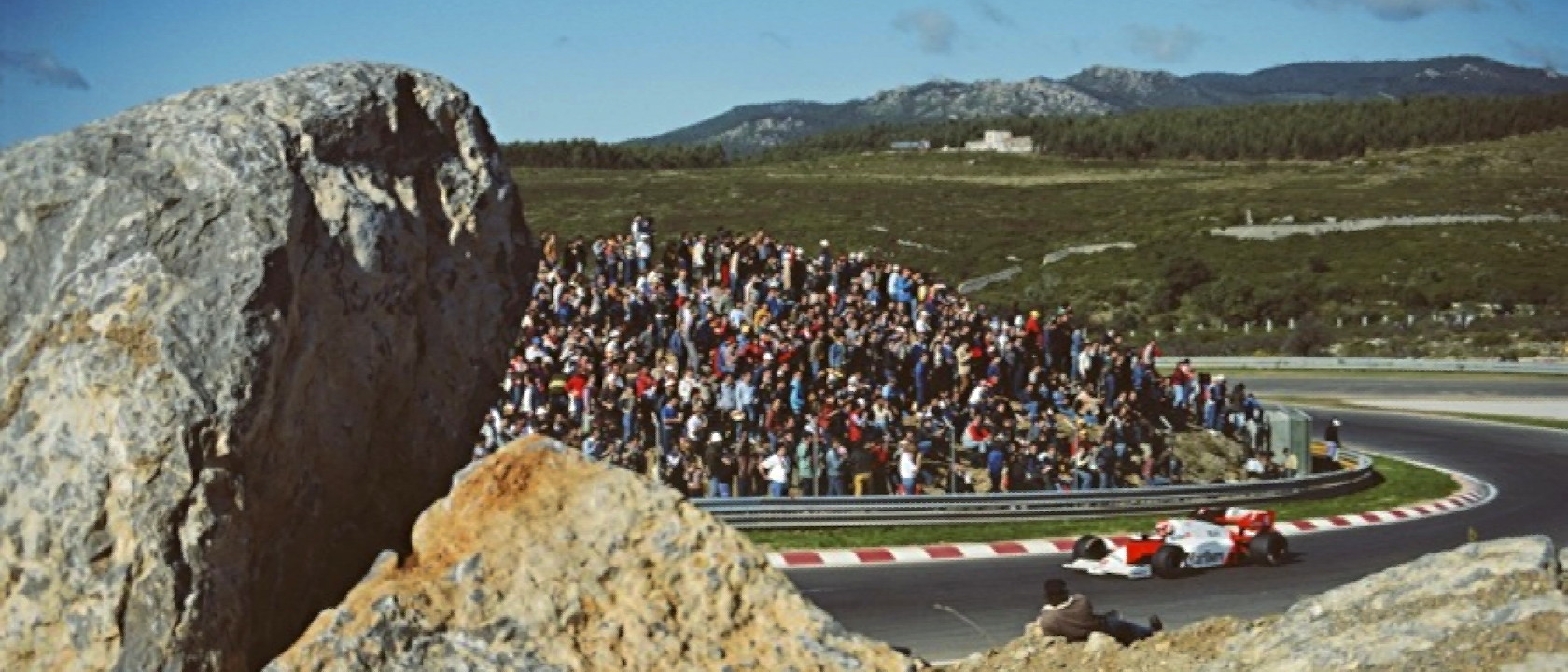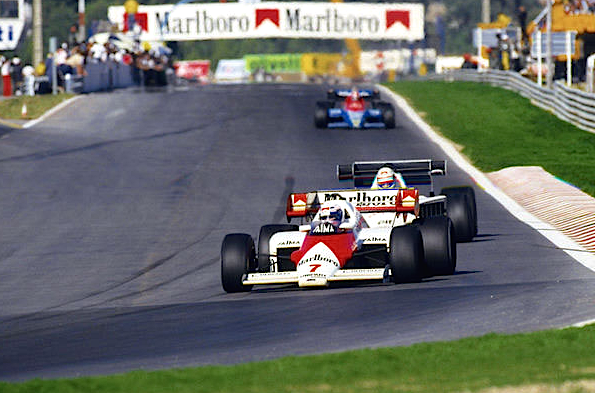In the 1984 Portuguese GP at Estoril, Niki Lauda needed 2nd place to secure the title, and gained this when Nigel Mansell spun out with 18 laps to go. As a result, he took the World Championship by just 1/2 point from McLaren teammate Alain Prost. The three drivers on the podium were all (at least) triple World Champions from different eras — Lauda, approaching the end of his long and distinguished F1 career, Prost, enjoying the best years of his career, and Ayrton Senna, still at the dawn of his. Classifications.
So, Prost took his 7th victory of the season (equalling Jim Clark’s 1965 record), but lost the title and was left to reflect on mistakes in Dallas and Austria. His win was the 12th for McLaren, which had reset the bar in terms of dominance. The 1-2 finish (McLaren’s 4th) also served as a good send-off for Michelin. Lauda secured a 3rd World Championship title, having used all his guile and experience to beat the Frenchman — it was somehow fitting that while Prost had taken the win, Lauda had neatly summarized his season by biding his time, making all the right moves and maximizing his score even if he wasn’t the fastest driver on the circuit. It had been a tense and exciting end to a season which had stayed a lot more enthralling than the McLaren steamroller would make it appear.
As Clive James recounted:
Lauda was in third place, 27 seconds behind Mansell with about that many laps to go. If he chased too hard, Lauda might break something. If he didn’t chase hard enough, and Mansell’s car failed to disintegrate, the championship was lost. Both boldness and caution were thus Lauda’s enemies. He held steady through the mental turmoil. Standing at the pit wall and bracing myself for the usual shock of Mansell’s transition down the straight, I suddenly discovered him arriving in the pits behind me. The piston in one of his front brakes had jumped out of its calipers. He stepped out of the car and disappeared under an avalanche of media. When the Lotus mechanics dug him out I asked him, perhaps tactlessly, for a one-word interview. He gave it to me.
At 60 laps with 10 to go, it was Prost, Lauda and the rest. Lauda was 40 seconds behind Prost but it could have been 400 as long as his car held together. Both of them turned down the boost to save fuel and avoid stress. The Grand Prix year spiraled gently to an end. Prost won the race and Lauda won the championship. The new boy won the battle and the old hand won the war.
An Observer Classic: Formula One Grand Prix, 28 October 1984 | The Observer. (For the fascinating reflections of famed UK announcer Murray Walker, see his Five of the Best video series at the BBC.)


